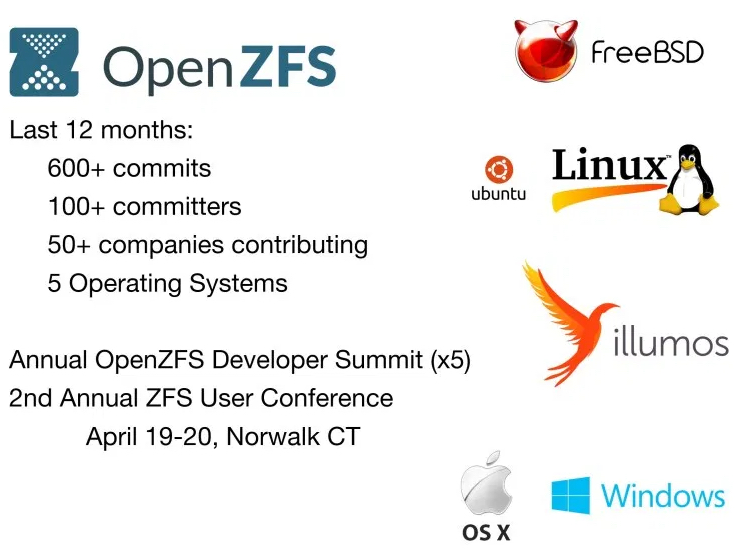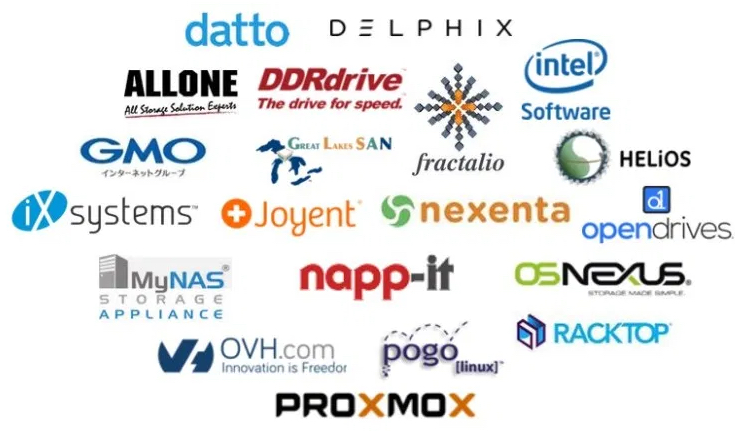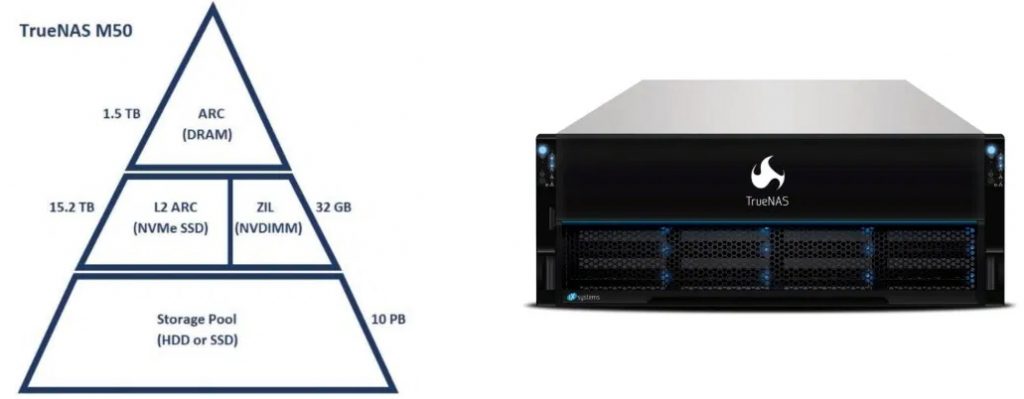Economic Benefits of OpenZFS Storage
Avoids costs of proprietary storage systems.
This is a Press Release edited by StorageNewsletter.com on November 19, 2019 at 2:38 pm The author of this article, written on November 7, 2019 and sponsored by iXsystems, Inc., is Ken Clipperton, DCIG LLC‘s lead analyst, storage.
The author of this article, written on November 7, 2019 and sponsored by iXsystems, Inc., is Ken Clipperton, DCIG LLC‘s lead analyst, storage.
The Compelling Economic Benefits of OpenZFS Storage
Have you had a key software vendor go from support increases of 3-5% to more than 20% annually? Have you had your key software vendor acquired and the acquirer then end development of the product? Have you had a key technology vendor exit your region at a time you were planning to expand your facilities?
As an IT director, I endured all these untimely and costly outcomes of vendor decisions. And then I discovered how to mitigate these risks through Open Source software such as OpenZFS , which solves these problems for software-defined storage.
OpenZFS Avoids Costs of Proprietary Storage Systems
Many enterprises have endured the pain of having proprietary storage systems abandoned in one way or another by the vendor. At that point, feature enhancements stop and support ends or begins to lag. Data security can even become an issue. As a result, many enterprises have been forced into costly and time-consuming migrations or into paying punitive maintenance and support costs.
OpenZFS storage shifts power away from the vendor to the customer. It has multiple vendors competing to provide the best value without vendor lock-in. Businesses can gain access to a complete solution with professional support, access to the community, complete documentation and source code, and an ability to migrate data easily. This competition reduces total storage costs both in terms of initial investment and long-term cost of ownership.
OpenZFS Has Rich History and Active Ecosystem
A team of talented engineers at Sun Microsystems created ZFS in 2001. In 2005, the company released ZFS as open source software as part of OpenSolaris. Consequently, it was ported to multiple operating systems. In 2010, Oracle purchased Sun and stopped releasing enhancements to OpenSolaris, effectively reverting ZFS to closed source.
Development of open source ZFS continued, but without the coordination that Sun provided. In 2013, OpenZFS was founded as a multivendor initiative to promote awareness of open source ZFS and to facilitate easier sharing of code among operating system platforms. This collaboration will ensure consistent reliability, functionality, and performance of all ZFS systems, regardless of their base OS.
Matt Ahrens, one of the original authors of ZFS, continues to be actively involved with OpenZFS. In a recent presentation, he highlighted the degree of active open development that continues under the OpenZFS banner.

The OpenZFS website currently includes the logos of 33 companies delivering products with OpenZFS as an integral part. These include iXsystems, Datto, Delphix, Intel, Nexenta by DDN. iXsystems FreeNAS and TrueNAS are the most widely deployed ZFS-based solutions, with more than one million deployed TrueNAS and FreeNAS storage systems.

OpenZFS is Scalable Open Source Enterprise Storage
ZFS is a proven file system suitable for enterprise storage. OpenZFS storage is a best-in-class open storage technology that is widely deployed in enterprises. It provides a rich set of data services. These include snapshots, clones, replication, compression, and encryption.
The reliability of ZFS is well known. Integrated into the file system is a RAID algorithm capable of single, dual, and even triple parity. All data is is committed via a Redirect-on-Write model that avoids any overwrites of existing data. A write log is maintained to ensure integrity during unexpected power events or hardware failures.
ZFS can deliver enterprise-class high availability when implemented as a dual-controller storage system. This scale-up design is familiar to, and well understood by enterprise technology professionals.
Its multi-tiered ZFS caching architecture is both efficient and scalable. It can take advantage of ongoing advances in persistent memory. This includes the option to use low-latency NVDIMMs and NVMe SSDs, as represented in this diagram of the iXsystems TrueNAS M50 storage system. The efficiency of ZFS translates into lower costs for both storage capacity and performance.

Consequently, OpenZFS-based systems can be built to suit a variety of storage use cases. These include high-performance AFAs for critical business applications, general-purpose storage, and secondary storage. Storage clients can use industry standard protocols such as iSCSI, NFS, SMB, and in some cases even FC and S3 object storage APIs to access the ZFS-based storage.
OpenZFS Delivers Compelling Economic Benefits
Enterprises can trust business-critical data to OpenZFS running on highly available dual-controller storage systems with enterprise-class commercial support. These are available as pre-configured appliances at very affordable prices. For example, iXsystems recently offered pre-configured dual-controller TrueNAS systems for purchase with raw capacities of 40TB for $9,900 and 6PB for $450,000. Put in public cloud terms, that is 6PB of enterprise-class storage for a one-time acquisition cost of $0.075/GB.
Even less expensive options bring ZFS to non-HA servers for non-critical workloads. Businesses can build their own SDS system by installing free OpenZFS software such as FreeNAS on servers already owned by the business. FreeNAS storage systems are also available as pre-configured appliances. These inexpensive systems can even serve as replication targets for commercially supported systems.
Organizations can further reduce operating costs by using management applications to automate administrative tasks. These include managing disk failures, updating software, analyzing capacity needs, and creating new data shares. ZFS-aware unified management systems such as TrueCommand can operate across both HA appliances and off-the-shelf servers simultaneously.
OpenZFS Gives Enterprises Control and Long-Term Cost Savings
The flexibility of OpenZFS to provide new features, services, platforms, and vendors on top of an enterprise-proven Open Source file system is a powerful proposition. OpenZFS-based storage systems empower enterprises to take control of their budgets and destinies without sacrificing data services or commercial support. When any organization is considering a new storage solution, it should give strong consideration to open storage for long-term cost savings.












 Subscribe to our free daily newsletter
Subscribe to our free daily newsletter
